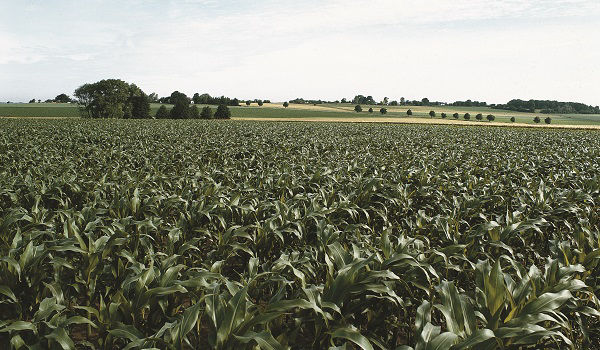Five Ways Fungicides Complement Corn Hybrids
May 15, 2016

While planning for the growing season, selecting herbicides to complement corn hybrids is almost always part of the process. Fungicide selection, on the other hand, is more likely to occur only after the disease is present. It is important for growers to know that those who plan an in-season fungicide treatment increase their opportunity to maximize yields and profit.
“It is well known that hybrids provide benefits, such as improved yields or better performance under certain field conditions” said Randy Myers, fungicides product development manager at Bayer. “It is also well known that fungicides improve plant health and prevent disease.
What may be less known is that fungicides can complement corn hybrids to help achieve maximum yields,” said Myers. “Taking this step ensures that you are covered so you only see the benefits both fungicides and hybrids provide.”
Five ways fungicides complement hybrids
Planning a fungicide application to complement your corn hybrid can help achieve maximum yields and increase profits. Fungicides complement hybrids in five ways:
1. Hybrid selection
Hybrids have varying levels of disease susceptibility. Providing a protective fungicide ensures a layer of disease control. The key is to select a fungicide that will help control diseases the hybrid is not resistant to, for improved plant health and maximum yields. For best results, it is important to consider which diseases may put pressure on your hybrids. Then, select a fungicide to meet those specific needs.
2. Weather patterns
Weather patterns can be unpredictable and damaging to crops. However, using a fungicide helps prevent weather-related disease and damage. A fungicide application can trigger beneficial physiological reactions, strengthen stalks, promote good standability and improve water efficiency to help corn plants better withstand weather stressors. Less weather-related damage and disease means more profit at the end of the season.
3. Irrigation frequency
Crops under heavy irrigation are more likely to develop foliar disease. A fungicide helps prevent disease and protect yields when excess moisture puts corn hybrids at risk.
4. Field history and characteristics
Field history and characteristics can make hybrids more susceptible to disease. Fields with low areas, fields that are surrounded by trees and fields with poor drainage are also more likely to retain excess moisture. Fungicides help foster improved plant health and prevent disease in susceptible fields.
5. Time of planting
Fast-growing hybrids are often selected to make up for lost time when weather and field conditions delay planting. Unfortunately, when corn plants grow faster, the waxy layers of the leaf surface—their first line of defense against infections—are often thinner, making them more susceptible to foliar disease. Complementing a late-to-plant, fast-growing hybrid with a fungicide can help prevent disease.
Bayer solutions for disease management
For effective disease control, select a fungicide with multiple modes of action that are tough on diseases.
The broad-spectrum disease control offered by Delaro® can complement corn hybrids to help growers achieve maximum yields. “With two modes of action, Delaro provides preventative and curative defenses against tough diseases,” Myers said.
Using Delaro on corn hybrids can also improve overall plant health. Delaro promotes healthy, dark leaves for improved photosynthesis and increased stress resistance. These features help utilize the full genetic and yield potential of corn hybrids. “In 2018 field trials, Delaro averaged a 16 bushel-per-acre yield advantage over the untreated check,” said Myers. “The results show that Delaro can be complementary to corn hybrids for enhanced performance.”
©2019 Bayer Group. Always read and follow label instructions. Bayer, the Bayer Cross and Delaro are registered trademarks of Bayer Group. Delaro is not registered in all states. For additional product information, call toll-free 1-866-99-BAYER (1-866-992-2937) or visit our website at www.CropScience.Bayer.us. Bayer CropScience LP, 800 North Lindbergh Blvd. St. Louis, MO 63167.
Disclaimer
Always read and follow pesticide label directions, insect resistance management requirements (where applicable), and grain marketing and all other stewardship practices.